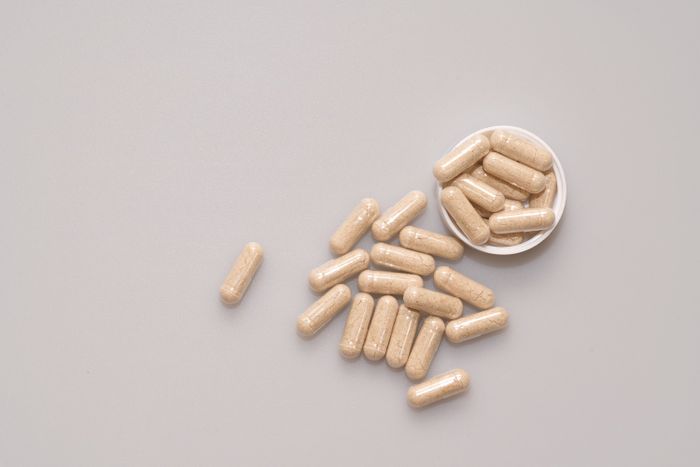Is Lion’s Mane Mushroom a Nutritious Superfood?
Updated September 20, 2023.

Aside from the impressive list of therapeutic benefits promised by Lion's Mane (Hericium erinaceus) mushrooms, such as improved cognitive function and immune support, they might also be a highly nutritious and healthy superfood.
This article breaks down the nutritional profile of Lion's Mane mushrooms and discusses their most important nutrition facts.
Nutritional Profile of Lion's Mane Mushrooms
One of the popular ways of consuming Lion's Mane mushrooms is to cook the whole mushrooms (or add the dried and powdered extract) into food. Let's assume you intend to make a healthy Asian soup with Lion's Mane mushrooms as the primary ingredient, then, assuming that you'll add about 100 grams Lion's Mane mushrooms to your soup (which is about 1.5 cups of chopped mushroom), you will be attaining the following nutritional value:
- 35 Calories
- 0g fat, saturated and trans included
- 0mg cholesterol
- 2g dietary fibre
- 2g carbohydrate sugars
- 2g protein
- 304mg potassium
- 10mg sodium
- 2mg calcium
- 0.41mg iron
It's important to note that these values are per 100 grams of fresh Lion's Mane mushrooms, which is well over 80% water. This means that you could essentially use 5-10 grams of dried mushrooms in your cooking and get the same nutritional content, if not more.
Most Important Nutritional Facts About Lion’s Mane Mushrooms
What might not be immediately clear about the nutritional profile listed above is how healthy it actually is. The breakdown of components is strikingly similar to broccoli, with only minor differences between the two. Considering the therapeutic benefits of these mushrooms, they hold up nutritionally is a major plus.
Lion’s Mane Is High in Protein
2 grams of protein might not seem like a lot at first glance, but it actually makes up 4% of the recommended daily protein intake, all from only 100 grams of fresh mushroom.
This protein contains around 45% essential amino acids, closely compared to high-quality egg protein that is around 50%. Amino acids are vital to the body's regular functioning, aiding in many processes like creating and repairing muscles, connecting tissue, and skin, among many others.
Lion's Mane Has Many Essential Vitamins and Minerals
Mushrooms are well known for their high micronutrient content, and Lion's Mane is great for the following:
- Potassium is great for maintaining electrolyte balance in the body, necessary for proper nerve and muscle functioning.
- Iron is needed for the circulatory system to maintain haemoglobin content in the blood and synthesis of amino acids.
- The B-vitamin content in Lion's Mane is essential for proper energy release.
Lion’s Mane Is Low in Calories, Fat, and Cholesterol
With basically no fat, calories, or cholesterol, Lion's Mane mushrooms scream health similar to many other superfoods like spirulina.
Lion's Mane is a Good Source of Fibre
With the majority of the carbohydrate content coming from dietary fibre, it makes up 7% of the recommended fiber intake. This is essential for your body to have a regular and well-operating digestive system. They contain almost no other carbohydrates and so will not affect blood-glucose levels in any big way.
Is Lion's Mane Good for Weight Loss?
After hearing all the nutritional information of Lion's Mane mushrooms, you might be wondering if they can potentially benefit you on your weight loss journey. With such low calories and minor amounts of sugar and fat, it's clear that these adaptogenic mushrooms are great for a healthy diet.
Additionally, as a final note, studies have shown that Lion's Mane can improve fat metabolism and lower triglyceride levels in the body, even further contributing to lower cholesterol in the blood and less fat storage.









